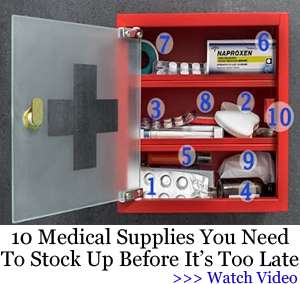Chest pain isn’t something anyone wants to deal with, but when it happens, it raises a lot of questions. You might be wondering if it’s serious or just something minor. The truth is, chest pain comes in many forms, and figuring out what’s behind it isn’t always easy.
Let’s break it down so you know what might be going on when you feel that tightness.
Different Types of Chest Pain
Chest pain doesn’t feel the same for everyone. Some describe it as sharp, while others feel a dull ache/pressure. The way the pain feels matters because it points to different causes.
- Sudden, sharp pain that feels like a stabbing sensation, possibly in a specific spot.
- A tight, heavy feeling, like something is pressing down on your chest.
- A burning pain that might remind you of heartburn.
- A dull, persistent ache that never quite goes away but doesn’t get worse.
These types of pain could mean different things. Sharp pain might be related to a muscle issue or nerve irritation. That heavy feeling? People often associate it with heart problems, though it doesn’t always mean that’s what’s going on. Burning pain? That could be your stomach causing issues with acid reflux. Knowing what kind of pain you’re feeling is a good starting point to figure out what might be happening.
Common Causes of Chest Pain
You might assume chest pain always means something wrong with your heart, but that's not the case. There are several things that could be responsible, and some of them aren’t even related to your heart.
- Muscle strain from heavy lifting, working out, or even bad posture can cause discomfort in your chest.
- Heartburn or acid reflux happens when stomach acid moves up into the esophagus, and it often mimics heart pain.
- Anxiety and stress create physical symptoms like chest pain, especially during panic attacks or periods of intense worry.
- Injuries to the chest, like a bruise or fractured rib, can cause sharp pain when you move, breathe, or press on the area.
- Heart-related issues, which people think about most often, can cause pressure, tightness, or pain, especially if it spreads to other areas.
You don’t need to panic when you feel pain, but taking a mental note of what’s going on around the pain helps. Whether it’s muscular, stomach-related, or stress-induced, there’s a range of reasons your chest could be hurting.
Symptoms That Go Along with Chest Pain
If you’re feeling pain in your chest, it’s not always just about the pain itself. There are other things to watch for that might give you a clearer picture of what’s going on. If you start noticing other symptoms along with the pain, that’s something to keep in mind.
- Shortness of breath where you feel like you can’t get enough air or need to breathe harder than usual.
- Sudden sweating that comes on out of nowhere, even if you haven’t been active.
- Nausea or a feeling like you might vomit can happen alongside the pain.
- Pain spreading from your chest into your shoulders, back, neck, or jaw.
- Dizziness or lightheadedness that makes you feel like you might pass out.
These signs don’t always mean something serious, but when they appear with chest pain, it’s worth considering the bigger picture. These aren’t things you should ignore, especially if they feel intense or out of the ordinary for you.
What to Do When Chest Pain Hits
If you feel chest pain, your first instinct might be to worry. But there are some practical steps to take when it happens that will help you figure out what’s going on.
- Sit down and rest. If you’ve been moving around, stop what you’re doing and see if the pain subsides when you’re still.
- Breathe deeply and slowly. If it’s stress or anxiety-related, focusing on your breath might help relieve some of the discomfort.
- Think about what you’ve eaten. Heartburn or reflux often happens after a meal, especially if it was spicy, greasy, or acidic.
- Consider your recent activity. Have you been lifting something heavy or doing any physical work that might have strained a muscle?
- Track the duration. If the pain passes quickly, it might not be something to worry about, but if it lasts several minutes or longer, that’s something to note.
These steps aren’t solutions, but they help you assess the situation in real-time. If the pain doesn’t let up or if it intensifies, that’s when it’s time to think more seriously about seeking help.
When Chest Pain Might Need More Attention
There are moments when chest pain shouldn’t be brushed off. If the pain feels different from what you’ve experienced before or if it’s accompanied by other worrying symptoms, it’s time to consider your next move.
- Pain that lasts longer than a few minutes and doesn’t seem to ease up after resting.
- Pain that suddenly intensifies, especially if it feels crushing or spreads to other areas of your body.
- Shortness of breath, sweating, nausea, or other symptoms that show up alongside the pain.
- A sense of confusion that makes it hard to think clearly or stay upright.
You don’t have to wait for things to get worse to decide to reach out for help. If something feels off, it’s better to check it out sooner rather than later. Even if it turns out to be nothing serious, getting peace of mind is always worth it.
After Chest Pain: What Happens Next?
Once the chest pain passes, it’s a good idea to pay attention to your body in the following hours. Just because it stopped doesn’t mean you’re out of the woods, especially if the pain was unusual.
- Rest if you’ve been overexerting yourself recently. Sometimes muscle strain or fatigue is behind the pain, and taking it easy helps.
- Watch for recurring pain. If the discomfort keeps coming back, even if it’s mild, it’s a sign that something’s up.
- Take note of any new symptoms. After an episode of chest pain, stay alert to any new signs, even if they’re small. It could help you catch something early.
Bottom Line
Chest pain can throw you off, but it doesn’t always mean something bad is happening. It’s more about paying attention to how it feels, what other symptoms come with it, and how long it sticks around. There are a lot of reasons you might feel pain in your chest, from stress and muscle strain to something heart-related. Staying aware of the situation helps you figure out what to do next.






